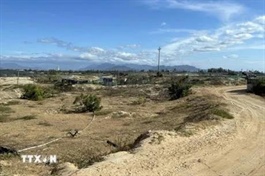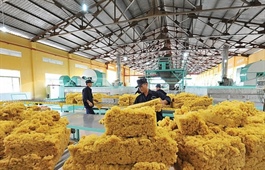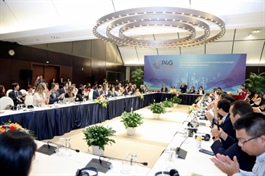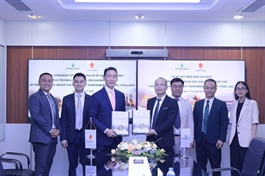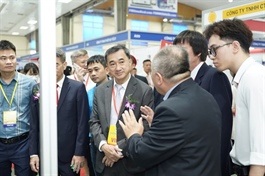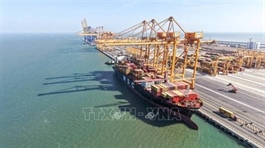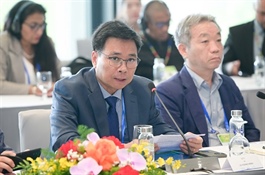Chinese expert advises Việt Nam on free trade zone development
Chinese expert advises Việt Nam on free trade zone development
Việt Nam is preparing to develop three FTZs in Hải Phòng, Đà Nẵng and Bà Rịa-Vũng Tàu, with plans to expand to other localities with strong air and rail connectivity, beyond just those with seaports
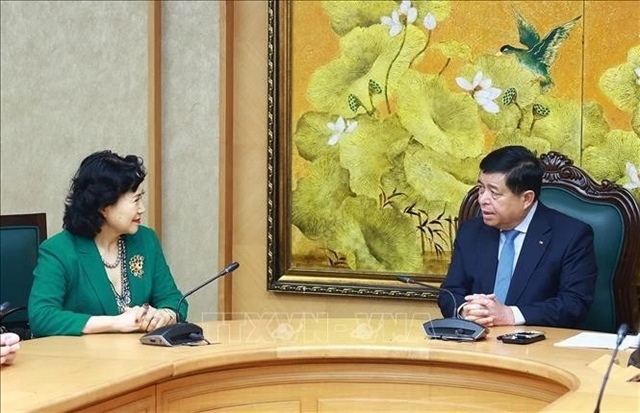
Deputy PM Nguyễn Chí Dũng (R) and CCSEZR Director Tao Yitao. — VNA/VNS Photo |
Tao Yitao, Director of the China Centre for Special Economic Zone Research (CCSEZR) under Shenzhen University in China's Guangdong Province, advised Việt Nam to utilise China’s expertise in developing higher-standard free trade zones during a working session in Hà Nội on April 17 with Deputy Prime Minister Nguyễn Chí Dũng.
Tao shared insights from her delegation’s field surveys in Bình Dương, Đà Nẵng, HCM City and Hải Phòng, saying that through in-depth discussions with local authorities, they identified transportation, energy and digital transformation as critical factors for successful FTZ development.
She underscored the pivotal role of digital economy and high technology, advising regions to capitalise on their unique strengths and growth drivers. Drawing on China’s experience, she proposed pilot FTZ projects in one or two cities to test new industries. If successful, these models could be scaled nationwide; if not, the economic impact would be limited.
Citing HCM City as an example, Tao suggested designing its FTZ to drive growth for surrounding areas, focusing on hi-tech industries, finance, and modern services thanks to its ability to attract skilled talent. For the southern province of Bà Rịa-Vũng Tàu, she recommended prioritising the seaport industry.
The delegation highlighted China’s FTZ models in Hong Kong, Macau, Shenzhen and Xinjiang, which integrate diverse foreign and domestic enterprises and specialised sub-zones beyond core trade functions.
Deputy PM Dũng praised Tao and CCSEZR for their insights and urged further consultations on the management of goods circulation within FTZs, taxation, talent retention and training and global FTZ trends, particularly Shenzhen’s governance model.
Việt Nam is preparing to develop three FTZs in Hải Phòng, Đà Nẵng and Bà Rịa-Vũng Tàu, with plans to expand to other localities with strong air and rail connectivity, beyond just those with seaports, he said.
- 15:35 18/04/2025



